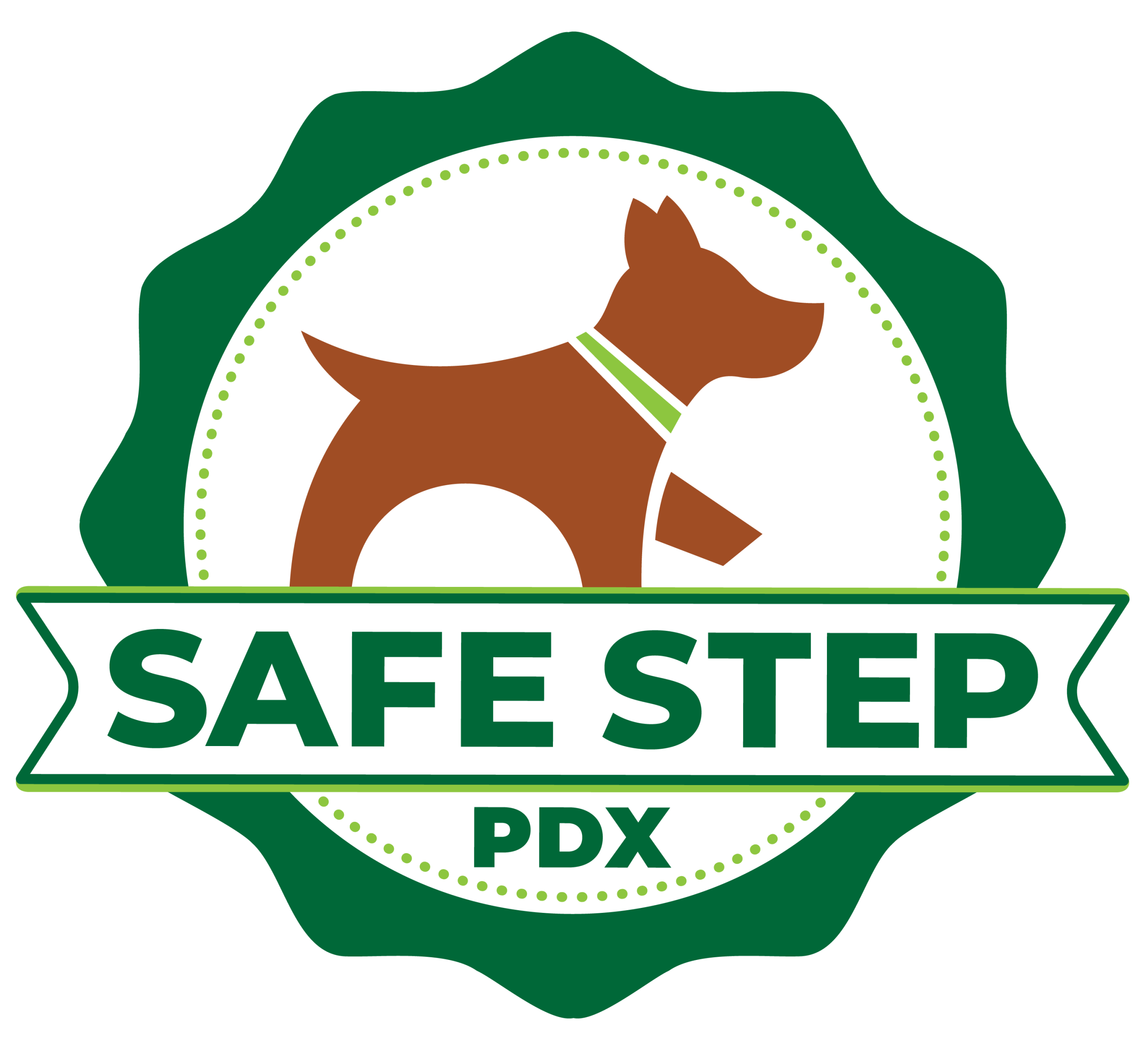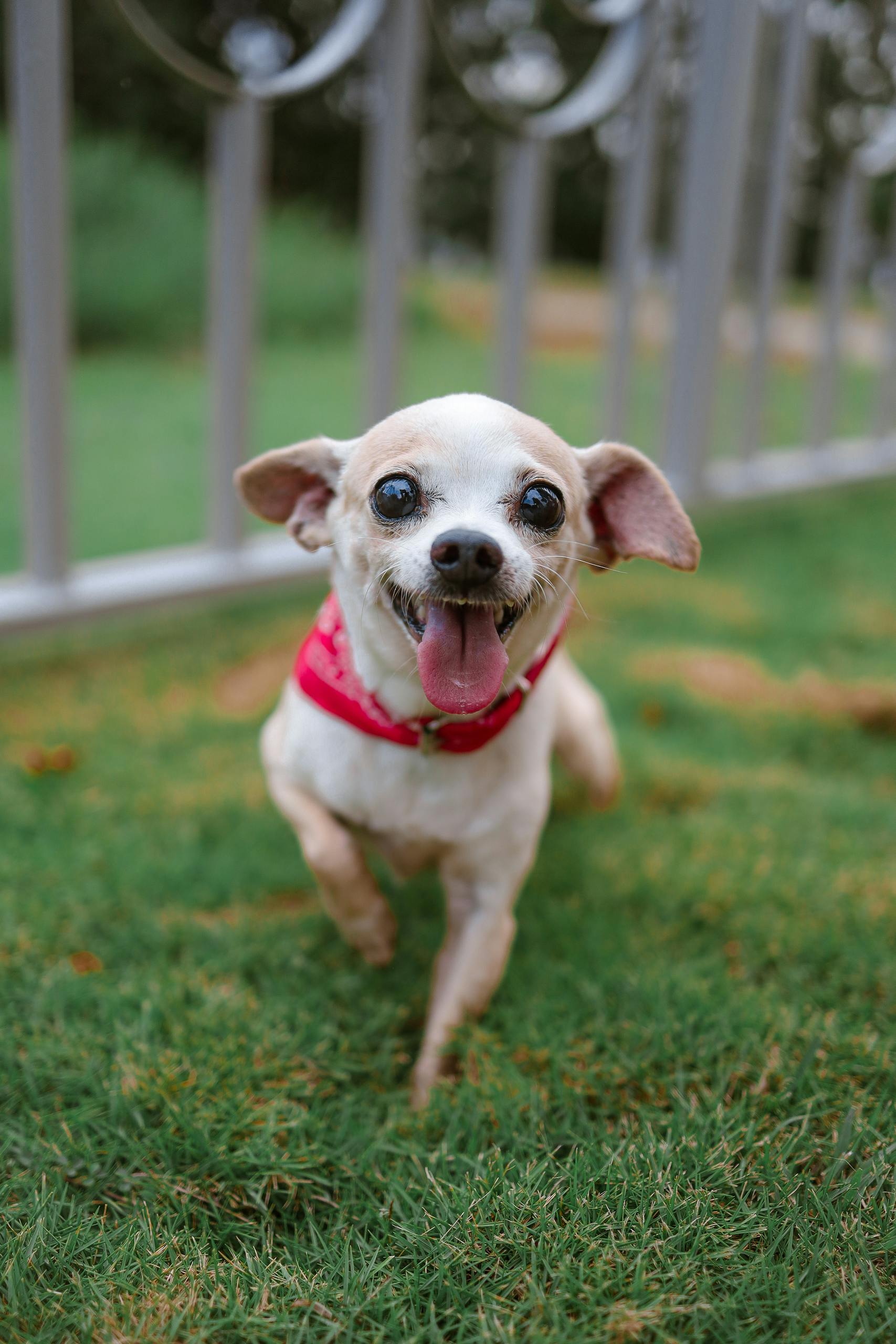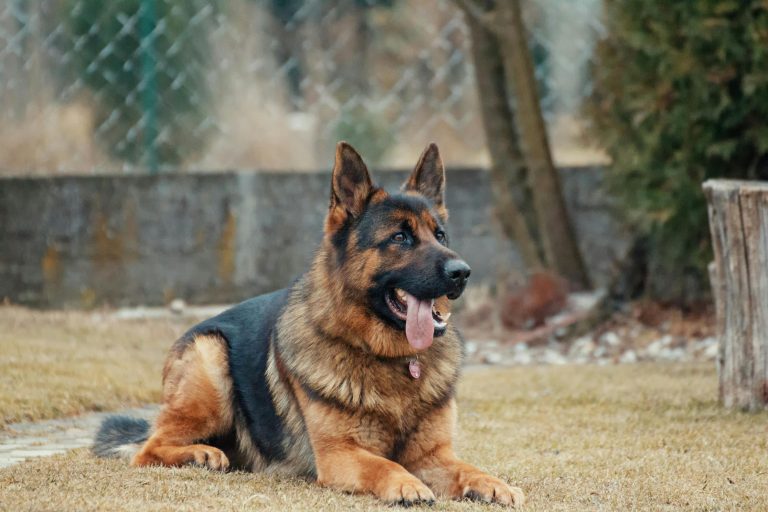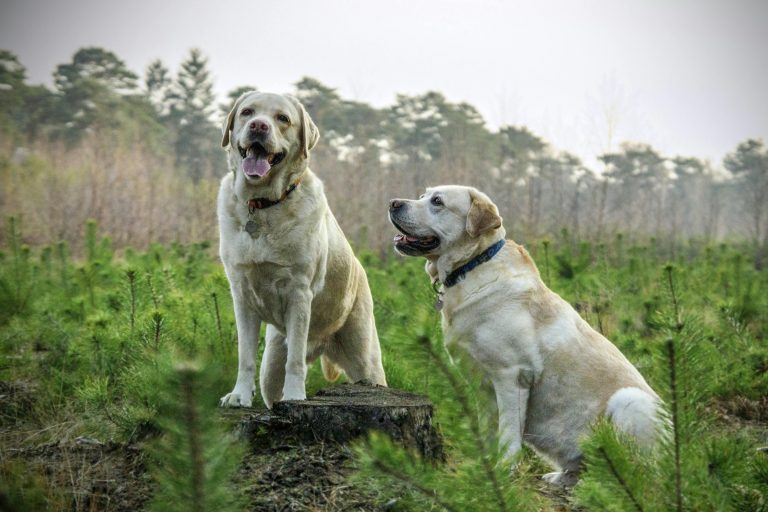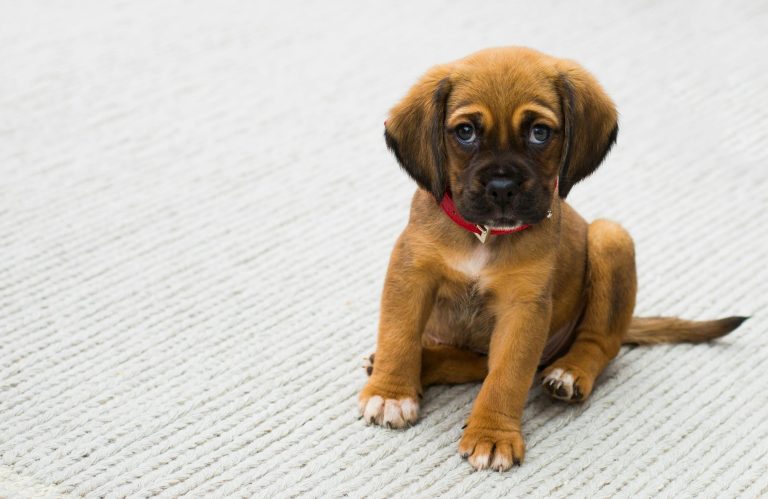Why Dog Waste Isn’t Fertilizer: The Science Behind the Problem
Many dog owners assume that pet waste acts as natural fertilizer that nourishes lawns and gardens. This common misconception can lead to neglected cleanup and serious damage to yards. The truth is that dog feces differs fundamentally from actual fertilizer in ways that make it harmful rather than beneficial to grass and plants.
Understanding the science behind why dog waste damages lawns makes clear why professional pet waste removal services aren’t optional maintenance—they’re essential protection for your landscaping investment. SafeStep PDX helps Portland area homeowners prevent lawn damage through regular pooper scooper services that eliminate waste before it can harm grass.
The Fundamental Difference: Diet Matters
The key difference between dog waste and beneficial fertilizer comes down to diet. Herbivores like cows and horses eat plant-based diets that result in waste high in digestible plant matter that can enrich soil. Their manure has been used as fertilizer for thousands of years precisely because it breaks down beneficially.
Dogs, by contrast, eat meat-based diets high in protein. Their digestive systems process this protein differently, resulting in waste with chemical properties that damage rather than nourish plants. The high protein content in dog food translates to elevated nitrogen levels in dog feces—but not in a form plants can use effectively.
Commercial fertilizers contain nitrogen in specific compounds and concentrations carefully formulated to feed plants gradually. Dog waste contains nitrogen in forms and concentrations that overwhelm grass and create chemical burn rather than healthy growth.
Nitrogen Burn: How Dog Waste Damages Lawns
Nitrogen burn is the most visible way dog waste damages lawns. This occurs when concentrated nitrogen in dog feces overwhelms grass’s ability to process nutrients, essentially burning the grass from chemical overload.
You can see nitrogen burn in the distinctive brown or yellow patches that appear where dogs repeatedly defecate. The grass in these areas dies from chemical damage, creating unsightly dead spots that often require reseeding to repair.
The damage occurs because dog waste releases nitrogen too quickly and in too-concentrated amounts. While grass needs nitrogen to grow, it requires small, steady amounts delivered over time. Dog feces dumps large nitrogen quantities all at once, creating toxic conditions rather than beneficial feeding.
Professional dog waste removal services prevent nitrogen burn by removing waste before it can damage grass. Regular cleanup by pooper scooper services protects your lawn investment and maintains healthy, attractive grass throughout your yard.
Acidity Problems in Soil
Beyond nitrogen issues, dog waste creates acidity problems that affect soil health and plant growth. Dog feces has a pH that makes soil more acidic over time, creating conditions where grass struggles to thrive.
Most lawn grasses prefer slightly acidic to neutral soil pH. When dog waste accumulates in certain areas, it gradually shifts soil chemistry toward excessive acidity that inhibits nutrient uptake and weakens grass plants.
The acid from dog waste can persist in soil long after the visible waste disappears. Areas where dogs repeatedly defecate may develop soil conditions that make it difficult for grass to grow even after reseeding, requiring soil amendment to restore proper pH balance.
Regular professional pet waste removal prevents this cumulative acid damage by removing waste before it can alter soil chemistry.
Harmful Bacteria and Pathogens
Unlike herbivore manure that can be composted into safe fertilizer, dog waste contains harmful bacteria and parasites that persist in soil and create health hazards. E. coli, salmonella, roundworm eggs, giardia cysts, and numerous other pathogens make dog feces unsafe for use as fertilizer.
These organisms can survive in soil for months, creating ongoing contamination even after visible waste disappears. Using dog waste as fertilizer would spread these pathogens throughout your yard, increasing health risks rather than improving soil quality.
Proper composting of dog waste requires specific conditions—including high temperatures sustained for extended periods—that typical backyard composting doesn’t achieve. Even dedicated pet waste composting systems require careful management and should never be used for food gardens due to contamination risks.
Professional pooper scooper services ensure proper disposal of collected waste, preventing contamination while protecting your lawn from damage.
Salt Content and Plant Health
Dog waste contains elevated salt levels from the minerals and compounds in commercial dog food. As waste breaks down in yards, these salts enter soil where they can damage grass and other plants.
Salt accumulation in soil interferes with plants’ ability to absorb water, essentially creating drought-like conditions even when adequate moisture is present. This osmotic stress weakens grass and makes lawns more vulnerable to heat, cold, disease, and other challenges.
The salt content in dog waste adds to the chemical stress on grass already dealing with nitrogen overload and acidity changes. Together, these factors make dog feces actively harmful to lawns rather than beneficial.
The Myth of Natural Decomposition
Some dog owners believe that leaving waste to decompose naturally is acceptable because it will eventually break down and disappear. While dog feces does decompose over time, this process creates problems rather than benefits.
In Oregon’s wet climate, dog waste doesn’t dry out and decompose quickly—it slowly breaks apart and spreads bacteria, parasites, and harmful chemicals throughout soil. Rain accelerates this contamination spread, washing pathogens and nutrients deeper into the ground and into stormwater systems.
The decomposition process itself releases ammonia and other nitrogen compounds that damage grass. Rather than gradually feeding your lawn like proper fertilizer would, decomposing dog waste continues causing harm throughout the breakdown period.
Professional pet waste removal services eliminate waste before decomposition can damage your yard or spread contamination.
Visual Evidence: Brown Spot Patterns
The pattern of brown spots in yards clearly demonstrates dog waste’s damaging effects. These dead or dying grass patches typically appear where dogs habitually defecate, showing the direct correlation between waste accumulation and lawn damage.
The spots often have a characteristic appearance: intensely brown or yellow centers where nitrogen concentration is highest, sometimes surrounded by darker green rings where diluted nutrients provide some benefit before reaching toxic levels.
These brown patches rarely recover without intervention. Dead grass must typically be removed and new seed planted to restore the area. Addressing underlying soil chemistry problems may also be necessary if waste has accumulated for extended periods.
Preventing these brown spots through regular professional pooper scooper services costs far less than repeatedly repairing lawn damage.
Comparing to Actual Fertilizer
Understanding what makes real fertilizer effective highlights why dog waste fails as a lawn treatment. Commercial fertilizers are carefully formulated with:
Balanced nutrient ratios providing nitrogen, phosphorus, and potassium in proportions plants can use effectively. Dog waste has unbalanced nutrient content that creates problems rather than providing complete nutrition.
Slow-release mechanisms that deliver nutrients gradually over weeks or months, preventing overload. Dog waste dumps all nutrients at once, overwhelming grass’s ability to process them.
Appropriate concentrations calculated to feed without burning. Dog waste contains nutrient levels far too concentrated for safe application.
No pathogens or contaminants that could create health hazards. Dog waste is full of harmful bacteria and parasites.
Professional pet waste removal protects your lawn while proper fertilizer application—separate from waste management—provides the nutrition grass actually needs.
Long-Term Soil Health
Accumulated dog waste doesn’t just damage grass in the short term—it creates long-lasting soil problems that affect plant health for years. Soil contaminated by persistent dog waste develops chemical imbalances, pathogen loads, and structural issues that make it difficult to maintain healthy lawns.
The nitrogen, acids, salts, and organic matter from dog feces alter soil composition in ways that favor different plant species than the grass you want. Weeds often thrive in these disturbed conditions while desirable grass struggles, requiring ongoing effort to maintain lawn quality.
Professional pooper scooper services protect long-term soil health by preventing the accumulation that creates these persistent problems.
Economic Impact of Lawn Damage
The cost of repairing lawn damage from dog waste often exceeds the cost of professional pet waste removal services that would have prevented the damage. Reseeding dead patches, addressing soil problems, and potentially hiring lawn care professionals to restore damaged areas all add up quickly.
A yard with multiple brown spots from nitrogen burn may require several rounds of treatment, soil amendment, and reseeding before grass fully recovers. The time and expense involved in these repairs far exceeds what regular pooper scooper services would have cost.
Preventing damage through professional dog waste removal represents a sound economic investment that protects your landscaping while maintaining property appearance and value.
Professional Service as Lawn Protection
Professional pet waste removal services protect your lawn investment by ensuring waste is removed before it can cause nitrogen burn, soil contamination, or long-term damage. Regular cleanup by trained technicians maintains healthy soil conditions and prevents the accumulation that creates visible damage.
SafeStep PDX provides thorough pooper scooper services throughout the Portland metro area, helping homeowners maintain beautiful, healthy lawns free from the brown spots and damage that dog waste causes. Our regular service ensures your grass gets the protection it needs while your yard stays clean and attractive.
Taking Action to Protect Your Lawn
Understanding that dog waste damages rather than fertilizes lawns makes clear why regular removal is essential. Professional pet waste removal services provide the most effective protection by ensuring consistent, thorough cleanup that prevents waste accumulation and soil contamination.
If you’re ready to protect your lawn from the damaging effects of dog waste while maintaining a pristine yard, professional pooper scooper services offer the ideal solution. Contact SafeStep PDX at 503-308-9085 to discuss how our service keeps your grass healthy and your outdoor space looking its best year-round.
